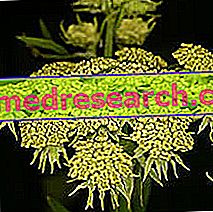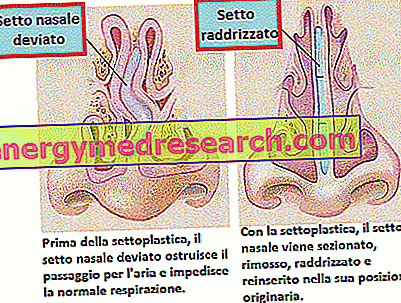
Scientific name
Levisticum officinale
Family
Apiaceae (Umbelliferae)
Origin
Mediterranean regions
Synonyms
Appio mountain
Used Parts
Drug given by the roots (tubers and by-products)
Chemical constituents
- Essential oil (alkyl phthalides);
- cumarine;
- Idrossicumarine;
- Furocoumarines.
Levistico in Herbalist: Properties of the Levistic
The lovage is used as a diuretic, urinary and balsamic disinfectant. However, clinical studies concerning the safety and therapeutic efficacy of the plant are not available.
Biological activity
Different properties are ascribed to the lovage, among which we recall those diuretic, carminative, emmenagogues, sedatives and antimicrobials.
Furthermore, the lovage essential oil seems to be able to exert a spasmolytic effect on smooth muscles, thanks to the action of ligustilide contained in it.
Finally, the ability to increase both salivary secretion and gastric secretion is ascribed to the plant. This action is probably due to the alkyl phthalides contained in the essential oil and to the characteristic bitter taste of the lovage.
In fact, it is not unusual for this plant to be used in digestive liqueurs or to be used for the preparation of herbal teas with indications for the treatment of dyspepsia. However, for more detailed information about these uses of the lovage, we recommend reading the article dedicated to "Levistico nella Tisane".
Levistic against urinary tract infections and kidney stones
Thanks to the diuretic properties of the lovage, its use has received official approval for the treatment of urinary tract infections and kidney stones.
More precisely, it exploits the naturally washing power of urine to favor the resolution of infections affecting the urinary tract and to prevent the formation of possible kidney stones.
To prevent and treat the aforementioned disorders, the lovage must be used internally. In general, it is recommended to take about 4-8 grams of drug per day, accompanied by an abundant supply of water, necessary to promote the diuretic action.
Levistic in folk medicine and homeopathy
In folk medicine, the lovage is used for the treatment of dyspeptic disorders, such as flatulence, a feeling of fullness, heartburn and indigestion, and for the treatment of menstrual disorders.
In addition, traditional medicine also uses this plant as a secretolytic remedy for catarrhal diseases of the respiratory tract.
The lovage is also used in the homeopathic field, where it can easily be found in the form of granules, drops and mother tincture.
Homeopathic medicine usually uses this plant in urinary tract infections, cystitis, dyspeptic disorders, flatulence and gastrointestinal cramps.
The amount of homeopathic remedy to be taken can be different between one individual and another, also depending on the type of disorder that needs to be treated and according to the type of homeopathic preparation and dilution that is to be used.
Contraindications
Avoid taking lovage in case of ascertained hypersensitivity to one or more components.
Furthermore, the use of the lovage or its preparations is also contraindicated in patients suffering from inflammation of the kidneys and urinary tract, in patients with reduced renal function, in patients with edema caused by heart and / or renal failure, in pregnancy and during lactation.
Pharmacological Interactions
not known
Levistic - Warnings
Photosensitization is possible due to the presence of furocumarine



